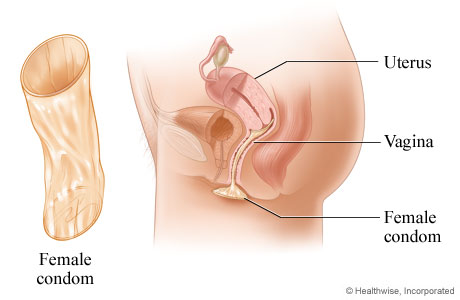A Very Lady Post - Part Two
A Very Lady Post - Part One
Ladies and gentlemen!
Today's topics are conception and contraception! Fun, no? Let's start with how babies are made.
To make a baby, we need a sperm from the father, an ovum (egg) from the mother and a uterus to contain the fertilized ovum. To make sure fertilization happens, sperm should be available at the time of ovulation (approx. day 15 of the cycle).
The father provides either a 23X or a 23Y chromosome sperm, and the mother provides a 23X chromosome egg. Thus, the father is the one to determine the sex of the baby (46XX being female and 46XY being male) . The sperm and the ovum meet at the fallopian tubes, then the fertilized ovum is implanted in the uterus where it grows.
Now, contraceptive methods.
There are few methods to prevent pregnancy:
- Oral contraceptives.
- Long-acting injectable contraception.
- Barrier contraception.
- Emergency contraception
- The most popular.
- Administration: The first pill is taken on the fifth day of the period, or the day the bleeding stops. One pill per day for 21 days, followed by 7 days of placebo pills.
- Mechanism of Action: They prevent ovulation.
- Side effects: Irregular breakthrough bleeding, nausea, headache, elevated blood pressure, weight gain.
- Should not be used in cases of: Diseases of over-clotting of blood, chronic liver disease, pregnancy, smoking in women over 35, cardiac disease.
- Health benefits: They reduce menstrual cramps, decreases uterine bleeding, protection against benign breast disease, prevent formulation of ovarian cyst, reduces the incidence of pelvic inflammatory disease, and reduce the risk of endometrial and ovarian cancer.
- Dosing: Intramuscularly or inserted beneath the skin.
- Mechanism of action: prevention of ovulation.
- Side effects: Irregular vaginal bleeding, amenorrhea, weight gain, alopecia, reduced libido, depression. Removal may be mildly uncomfortable due to fibrosis.
Barrier Contraception:
- Works by placing a physical barrier to stop the sperm from reaching the ovum.
- Male condoms:
- The most popular, a sheath placed over the penis and prevents semen from entering the vagina.
- Disposable, convenient, inexpensive, readily available, prevents some STDs.
- Intravaginal devices:
- Diaphragm:
- A circular patch of latex held in place by a metal frame. It prevents the passage of sperm into the cervical canal.
- Must be removed several hours after coitus.
- Cervical cap:
- Smaller than the diaphragm.
- it may be left in place for several days after coitus, but has a higher failure rate than the diaphragm.
- Female condom:
- fits loosely inside the vagina. Infrequently used.
I guess this post is long enough for today! Next post: The rest of the contraceptives! Don't miss it!







Hi,
ReplyDeleteUseful post. I was wondering about something though. I heard that for the pills some women can't take due to them not being able to handle the possible effects of changing the hormonal balance, and that it may also cause long-term effect on fertility, is this true?
Also, are there any days of the menstrual cycle with such low fertility as to be considered safe to engage in intercourse on?
My wedding is soon.
Hello Abbas!
ReplyDeleteThe main reasons some women can't take oral contraceptive pills (OCPs) is: a) being obese. b) heavy smokers. c) a family history of blood clots. Simply because OCPs increase the risk of blood clots. Now, about the pills not taking: There is a failure rate of up to 8%, meaning the possibility of pregnancy is up to 8%. There have been no documented long term side effects on fertility though it takes some women longer to get back to their regular cycle and thus achieve pregnancy.
The counting method is not the safest way, as the failure rate is high (up to 20%). If she's afraid of using OCPs you could both visit her Ob/Gyne doctor together to discuss your options. This is a decision that involves both of you and hopefully you'll find a method that agrees with both.